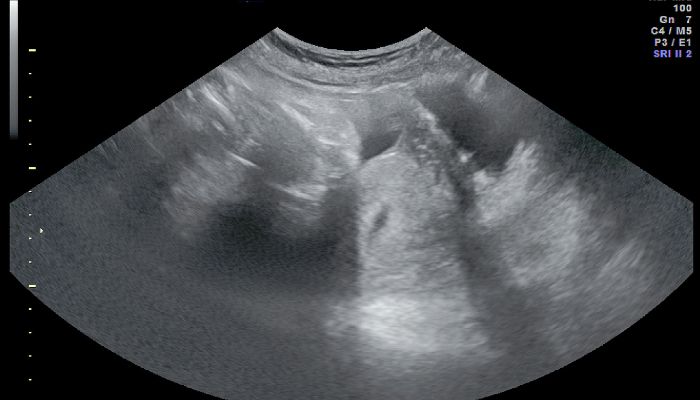
Obstetrical Ultrasound
Obstetrical ultrasound is a critical diagnostic tool used throughout pregnancy to monitor the health and development of both the mother and the baby. It is a non-invasive procedure that uses sound waves to create images of the baby inside the womb. At Punam Surgical and Maternity Hospital, led by the experienced Dr. Punam Dixit, we provide comprehensive obstetrical ultrasound services to ensure a safe and healthy pregnancy journey.

What is Obstetrical Ultrasound?
Obstetrical ultrasound (also called a prenatal ultrasound) is a medical imaging technique used to visualize the fetus in the womb during pregnancy. The procedure uses high-frequency sound waves to create a real-time image of the developing baby, placenta, and amniotic fluid. These images can provide valuable insights into the health and development of the fetus, allowing for early detection of any potential complications.
How Does Obstetrical Ultrasound Work?
During an obstetrical ultrasound, a gel is applied to the mother’s abdomen, and a device called a transducer is moved across the skin. The transducer emits sound waves that bounce off the baby and other tissues, creating echoes. These echoes are converted into images displayed on a monitor. Ultrasound imaging does not involve radiation, making it a safe procedure for both the mother and the baby.

Types of Obstetrical Ultrasound
There are several types of obstetrical ultrasound that are typically performed during pregnancy. Each type serves a specific purpose in monitoring the health of the mother and the baby:
1. First-Trimester Ultrasound
The first ultrasound is typically performed between 6 to 12 weeks of pregnancy. It helps confirm the pregnancy, detect the fetal heartbeat, and estimate the due date. This early ultrasound is essential for checking for any abnormalities such as an ectopic pregnancy (when the embryo implants outside the uterus) and confirming the number of fetuses (singleton or multiples).
2. Anatomy Scan (Second-Trimester Ultrasound)
This ultrasound is usually performed between 18 and 22 weeks of pregnancy. It provides a detailed view of the baby’s anatomy, including the brain, heart, kidneys, and limbs. The obstetrical ultrasound also checks the placenta’s position, the amount of amniotic fluid, and the baby’s growth.
3. Growth Scan (Third-Trimester Ultrasound)
Growth scans are typically done in the third trimester, usually between 28 and 40 weeks. These ultrasounds help monitor the baby’s growth, measure the amniotic fluid levels, and ensure that the baby is in the correct position for delivery. If there are concerns about the baby’s growth or any complications arise, further monitoring will be done.
4. Doppler Ultrasound
A Doppler ultrasound is used to assess the blood flow in the umbilical cord, placenta, and baby. This type of ultrasound is especially important for pregnancies at risk due to conditions like high blood pressure, diabetes, or growth restrictions. It helps ensure that the baby is receiving enough oxygen and nutrients.
Why Obstetrical Ultrasound is Important
Obstetrical ultrasound is an essential part of prenatal care for several reasons. Here are some key benefits:
1. Confirming Pregnancy and Establishing Due Date
The first ultrasound confirms the pregnancy and provides a more accurate estimate of the due date. It is an important milestone, especially for women who have irregular menstrual cycles.
2. Monitoring Fetal Development
Ultrasound is critical for tracking the baby’s growth and development. It helps identify any abnormalities or concerns early on, allowing for timely interventions. For example, it can detect structural anomalies such as heart defects, spina bifida, or cleft lip.
3. Assessing Placenta Health
The placenta plays a crucial role in providing nutrients and oxygen to the baby. Ultrasound imaging helps doctors evaluate the position and health of the placenta. Conditions like placenta previa (when the placenta covers the cervix) can lead to complications during delivery, making early detection essential.
4. Detecting Multiple Pregnancies
Ultrasound helps detect multiple pregnancies (twins, triplets, etc.). This is especially important for monitoring the progress of each fetus, as multiple pregnancies may carry higher risks such as preterm birth or low birth weight.
5. Identifying Potential Pregnancy Complications
Ultrasound can also help identify complications like ectopic pregnancies, miscarriages, and issues related to amniotic fluid levels. In high-risk pregnancies, regular ultrasounds can provide crucial information about the health of the baby and mother.
Obstetrical Ultrasound at Punam Surgical and Maternity Hospital
At Punam Surgical and Maternity Hospital, we prioritize the health and safety of both mother and child. Led by Dr. Punam Dixit, our experienced team uses the latest ultrasound technology to monitor every stage of pregnancy. Here are some reasons why our hospital is the preferred choice for obstetrical ultrasound in Patna:
1. Experienced Medical Team
Dr. Punam Dixit, with over 26 years of experience in gynaecology and maternity care, ensures that each patient receives personalized care and accurate diagnoses. Our team of specialists works closely with the expectant mother to interpret ultrasound results and plan appropriate interventions if necessary.
2. Advanced Ultrasound Equipment
We utilize the most advanced ultrasound machines to provide clear, detailed images of the baby, placenta, and amniotic fluid. Our state-of-the-art equipment allows us to provide accurate assessments and monitor the baby’s development throughout the pregnancy.
3. Comprehensive Maternity Care
At Punam Surgical and Maternity Hospital, we offer comprehensive maternity care that includes regular obstetrical ultrasounds, routine checkups, and prenatal education. We aim to provide the best possible care for both mother and child, ensuring a healthy pregnancy and delivery.
4. Patient-Centered Approach
We understand that pregnancy can be an emotional and exciting journey, and we are committed to providing a supportive and compassionate environment. From your first ultrasound to delivery, we are with you every step of the way, ensuring that you receive the care you need.